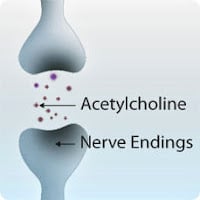MEDICINES:
Alzheimer’s drugs are classified as “Cognitive Enhancers”. Learn why they are NOT for mild memory problems.
Find out why prescribing them for Mild Cognitive Impairment is bad practice.
There are 4 FDA-approved Alzheimer’s drugs, also known as “Cognitive Enhancers”. They help with concentration, memory, alertness and moods.
When a person’s brain is not working properly, though not to the point of being ill, (such as when a person experiences too much forgetfulness, while at the same time, they can still take care of their normal daily activities), doctors diagnose the problem as MCI (Mild Cognitive Impairment) or pre-dementia.
Article continued below…
|
Drugs for Early to Midstage Alzheimer’s | |
| Brand Name | Generic Name |
|---|---|
| Aricept® | donepezil |
| Exelon® | rivastigmine |
| Remynil or Razadyne® | galantamine |
| Drugs for Moderate to Severe Stage | |
| Namenda® or Ebixa® | memantine |
An important study shows that cognitive enhancers do not improve cognition or function in people with MCI (Mild Cognitive Impairment) in the long term. The study was done by researchers at St. Michael’s Hospital.
Side Effects of Cognitive Enhancers
In fact, patients on these medications experienced significantly more nausea, diarrhea, vomiting and headaches, according to the study published today in the Canadian Medical Association Journal.
“Our findings do not support the use of cognitive enhancers for mild cognitive impairment,” wrote Dr. Andrea Tricco and Dr. Sharon Straus, who are both scientists in the hospital’s Li Ka Shing Knowledge Institute. Dr. Straus is also a geriatrician at the hospital.
Mild cognitive impairment is a condition characterized by memory complaints without significant limitations in everyday activity. Between 3 and 42 per cent of people are diagnosed with the condition each year, about 4.6 million people worldwide. Each year about 3 to 17 per cent of people with mild cognitive impairment will develop dementia, such as Alzheimer’s disease. Given the aging population, it’s estimated the number of Canadians with dementia will double to more than 1 million in the next 25 years.
Delaying Dementia
It has been hypothesized that cognitive enhancers may delay the onset of dementia. Families and patients are increasingly requesting these drugs even though their efficacy for patients with mild cognitive impairment has not been established. In Canada, cognitive enhancers can be obtained only with special authorization.
Drs. Tricco and Straus conducted a review of existing evidence to understand the efficacy and safety of cognitive enhancers. They looked at eight randomized trials that compared one of four cognitive enhancers (donepezil, rivastigmine, galantamine or memantine) to a placebo among patients diagnosed with mild cognitive impairment.
Short Term Vs. Long Term Benefits
While they found short-term benefits to using these drugs on one cognition scale, there were no long-term effects after about a year and a half. No other benefits were observed on the second cognition scale or on function, behaviour, and mortality. As well, patients on these medications experienced significantly more nausea, diarrhea, vomiting and headaches. One study also found a higher risk of a heart condition known as bradycardia (slow heartbeat) among patients who received galantamine.
“Our results do not support the use of cognitive enhancers for patients with mild cognitive impairment,” the authors wrote. “These agents were not associated with any benefit and led to an increase in harms. Patients and their families should consider this information when requesting these medications. Similarly, health care decision-makers may not wish to approve the use of these medications for mild cognitive impairment, because these drugs might not be effective and are likely associated with harm.”
MORE INFORMATION:
This study was funded by the Drug Safety and Effectiveness Network/Canadian Institutes of Health Research.
Another St. Michael’s study published in the CMAJ in April found no evidence that drugs, herbal products or vitamin supplements help prevent cognitive decline in healthy older adults. That review, led by Dr. Raza Naqvi, a University of Toronto resident, found some evidence that mental exercises, such as computerized memory training programs, might help.
About St. Michael’s Hospital
St Michael’s Hospital provides compassionate care to all who enter its doors. The hospital also provides outstanding medical education to future health care professionals in 27 academic disciplines. Critical care and trauma, heart disease, neurosurgery, diabetes, cancer care, care of the homeless and global health are among the Hospital’s recognized areas of expertise. Through the Keenan Research Centre and the Li Ka Shing International Healthcare Education Centre, which make up the Li Ka Shing Knowledge Institute, research and education at St. Michael’s Hospital are recognized and make an impact around the world. Founded in 1892, the hospital is fully affiliated with the University of Toronto.












I want to know is there any other alternative to Ebixa? For Alzheimers my father took Ebixa 10 mg but I want to get the natural way
Vomiting is actually a rather common issue that does occur because of various reasons. However, the absolute most common factors are due to childbirth, travelling or thanks to excessive heating. This may also happen by consuming unhealthy or contaminated foods due to specific ailments. Home Remedies such as Vomiting,Take the ashes of small cardamoms mixed with honey. That really is beneficial in re Living vomiting and nausea. Slowly suck a piece of lemon or icecream. This is just another helpful home alternative. Here are the most effective ways how to stop vomiting, you can get the more home remedies for vomiting, instantly!
It's a chronic neurodegenerative disease that usually starts slowly.Most early symptom of this disease is difficulty in remembering recent events.We can also say short term memory loss.People whose are facing this problem,they also face loss of motivation, disorientation, mood swings and many other issues.I'm 24 old,me also facing this problem from the year 2016.Now i have started taking consultant for alzheimer's treatment
Amazing post. we must treat drugs as a killer enemy. that's how we will come over drugs.
My father was prescribed aricept for MCI he was only on it for a month , my dad became very ill was unable to eat or drink and he became diabetic and had to be hospitalised for 2 weeks. It was unbelievable! This drug caused my dad so many problems, after taking it he would just sleep all the time and his memory became worse. The after doing research on this drug I asked the Drs at the hospital to stop this drug! Two days after stopping it my dad started eating again. I believe my dad would have died if he continued on this drug, he could not even drink water!!! I am so angry, that this drug is available, it should be taken off the market, it's a POISON! My dad's memory has become worse with this medication, I just hope the effect it has had on his memory is reversible!! Has anyone else experienced this! Thanks for listening , regards Mary.
Hi Mary, I hope your father is doing better now. My mother in the UK has had a similar shameful experience. She has had MCI for a while and her GP without any full specialist referral jumped to a rapid conclusion that she has Alzheimer's and put her on Aricept. She is also very anxious in general without any treatment and has a general poor memory – nothing really news.
Within 2 weeks she was hospitalised for 2 weeks, unable to eat, confused, delirium – all very rapidly onset without any warning. Certainly not symptomatic of how I understand Alzheimer's.
Whilst in hospital I advocated from afar for her to be scanned and there was no conclusive signs. There was a suggestion of small vessel disease consistent with a brain of her age. Currently she is not in a great state but is slowly recovering and is out of hospital. I hope her memory and concentration improves.
I was shocked that a GP could do this without at least consulting a specialist first. I'm sure Aricept has a place, but without confirming the type of dementia it may be doing more harm than good.
Thank you so much for all the tips!!!
Dear Sharon
The doctors knows that donepezil cause oversecretion of mucus in all respiratory system (as in the gastrointestinal system).Maybe they aren’t styll making a link between the administration of donepézil and the side effect of a laryngeal refluxo r accumulation of mucus.
I guess that you could asks to the physician if maybe the laryngeal reflux ,could come from the accumulation of mucus in consequence of the parasympathetic overactivation caused by acetylcholinesterase inhibitors (donepezil) that leads to the “post nasal drip” associated to oversecretion of mucus in of glands in larynx .trachea and bronchi .
I made a short text editing of an article from the site of the ELMHURSTH COLLEGE (Illinois –U.S.A.) that I pasted bellow :
" CHOLINERGIC STIMULATING AGENTS :
“Acetylcholine is the chemical transmitter for nerves of the PARASYMPATHETIC, somatic system …”
After acetylcholine interacts with the cholinergic receptor it is very rapidly hydrolyzed by the enzyme acetylcholinesterase.
Acetylcholine acts on two vastly different classes of receptors – nicotinic receptors (with two subtypes, one at the neuromuscular junction of skeletal muscle, the other within ganglia and the CNS), and muscarinic receptors (widely distributed within both peripheral and central nervous systems).
STIMULATION OF PARASYMPATHETIC SYSTEM :
Stimulation of cholinergic nerves is achieved either directly or indirectly.
1) DIRECT STIMULATION OF CHOLINERGIC NERVES (parasympathetic nervous system)
Direct acting agents (agonists) activate the receptor site by mimicking the effects of acetylcholine.
2)DIRECT STIMULATION OF CHOLINERGIC NERVES (parasympathetic nervous system)
Cholinesterase inhibitors (as Aricept (donepezil), Razadine,etc.) act indirectly by preventing the enzyme from hydrolyzing (inactivating) acetylcholine at the receptor site, increasing the levels of acetylcholine .
This inhibition of acetylcholinesterase permits the buildup of acetylcholine and results in more intensive and prolonged activation of the receptor site.
Increasing acetylcholine levels using acetylcholinesterase inhibitors (donepezil,etc.) leads to the PARASYMPATHETIC OVERACTIVITY that leads to :
The effects of cholinergic stimulation include:
a) Vasodilation of blood vessels that leads to very low blood presure (dizziness fainting) and increases the side effects of heart and blood pressure medicine drugs ,increasing the risks of strokes by lowering in the brain blood flow.
b) Slower heart rate – can leads to heart arrhythmias , dizziness fainting ,increases the side effects of heart and blood pressure medicine drugs
c) Constriction of bronchioles and increased secretion of mucus in the respiratory tract .The excessive bronchial secretions leads to dyspnoea, coughing and wheezing ,mainly with asthma patients and with patients with chronic obstrutive pulmonary disease
d) Increased secretion of saliva ; intestinal cramps; vomiting, abdominal cramping (intestinal cramps), chronic diarrhea
d) Urinary incontinence
e) Incresead sweat
f) Increased secretion of tears (excessive lacrimation)
g) Constriction of eye pupils by contract the ciliary muscle with causes the iris to be withdrawn (pinpoint pupils leading to blurred vision) …”
I hope that it can help you and your husband in some way.
Best regards
Carlos
Myfather take donepezil And. Sometimes he starts mumbling and will pass out for about 30 seconds must be what causes it
Searching in medical sites and reading the labels of the box of acetylcholinesterase inhibitors as Aricept (donepezil) and others acetyl cholinesterase inhibitors (as Razadine,etc) we can see that they can gives to the patient some mild to severe side effects (and sometimes NONE therapeutic effect.)
Even for patients that Aricept works it can leads to the side effects as : heart arrhythmias (as slow heartbeat) and very low blood pressure leading to dizziness and fainting.
These side effects can be worst mainly if the patient it is treating of heart arrhythmias and if is taking drugs to control high blood pressure, once donepezil can have a synergistic effect (in a bad way) ,with that drugs
But please , do NOT stops any drug –talk to the physician of the patient about some severe side effect.
Donepezil Increases too secretion of tears (like a continuous tearing) and mucus in paranasal sinus and nasal cavity (continuos nasal discharge similar to a cold – but is not a cold ) and increases secretions in trachea,bronchi and lungs ,that sometimes can worsens asthma symptons and worsens too chronic obstrutive pulmonary disease symptons .
Aricept (donepezil) as others acetylcholinesterase inhibitors (Razadine , etc.) can increases the secretion of acid in the stomach , incrasing the chances of ulcers and bleeding .
These drugs can leads to chronic diarrhea that can leads to lower the blood pressure in a synergistic effect with the side effect of donepezil in lowering BP. increasing the risks of strokes caused by very low blood pressure.
It is important to use devices to registers the heart rate and blood pressure two to three times a day when dementia patients are taking donepezil (Aricept) and others acetylcholinesterase inhibitors
My husband has been SUFFERING from the "post nasal drip" and now they tell me laryngeal reflux, for 2 years since he started taking Aricept. Where did you learn this information, so I can take it to his doctors.
Deane – while correct these will not hurt, not all respond. I belong to a group of hundreds of Alzheimer's spouses. What works for some will not work for others. As they say: when you have seen one Alzheimer's patient you have seen one'.
Good diet and exercise probably help the older patients by delaying onset and symptoms. As for the drugs – only a small percentage are helped by them and that help is only to stay cognitively functioning longer. My husband has been on galantamine for five years now. It has never proven to work longer than 6 months to a year – if it works. The doctor does not want to stop it but there will be a time when he is at a point in the disease when I will make the decision to stop it. When he was diagnosed we talked about it, so it is a joint decision.
I think in the end they will find different causes for AD. For diabetics there is the diabetes type 3 research. For others like my husband early onset runs in his family. Environment, all the genetic modified foods and additives, and things like that are probably a factor too.
You are right, not everyone will respond to natural treatments just as not everyone responds to drug treatments. I also agree that AD will be found to have many causes, not just one.
One would do a lot better skipping the Aricept and adopting a brain-healthy lifestyle which included coconut oil, omega-3s and B complex supplements. There is scientific evidence that each of these can improve cognitive function, may even reverse Alzheimer's, and they won't do you any harm, unlike the drugs mentioned in this post.
My name is Nancy M. Alterman, LCSW- I have been working with people who have one form or another of dementia like Alzheimer’s for almost 30 years- I started when there were No medications available- I am concerned about the misleading nature of this article, After all, the medication is not designed to improve cognition. It is only designed to slow down the ravages of the illness. I tell patients and their families, that medication slows down a runaway train that might be moving at 50 miles per hour to maybe 20 miles per hour. It never stops the train or puts it in reverse. Most importantly, the medication supports independent skills us human beings tend to value. Preserving functioning like self toileting and self feeding delays nursing home placement. That is the main purpose of the medication- to allow patients the dignity of remaining in the care of their loved ones LONGER with medication than without it. Mild Cognitive Impairment often converts to a dementia within 2 years. Therefore, the sooner someone starts medication, the more cognitive reserve they can retain in their brain, the longer they can remain independent. You choose what you would want for yourself!
Will Namenda work in someone with advance AD?
With all due respect, this is hardly the first study to reach the conclusion that cholinesterase inhibitors and/or Namenda should NOT be prescribed for patients with MCI.
The vast majority of people diagnosed with MCI — fully two-thirds — never progress to full-blown dementia (over the ten-year period this subject has been studied). In fact, half of them gradually recover/revert to normal. That's total, not per year. One-fifth simply hold stead with mild impairment.
Moreover, if MCI does progress to a dementia, it will not necessarily progress to Alzheimer's. The type of dementia that may emerge depends on the type of MCI involved. MCI can be divided into amnestic and nonamnestic MCI, and each of those further divided into single- and multiple-domain. Only single-domain amnestic MCI is most likely to progress to Alzheimer's. Others are more likely to develop to a non-Alzheimer's disorder such as frontotemporal dementia (FTD), vascular dementia, or Lewy body dementia. Giving a cholinesterase inhibitor to a disorder that does not involve cholinergic dysfunction, such as FTD or "pure" vascular dementia, is likely to cause serious problems with cognitive function.
And has been correctly noted elsewhere in these comments, many of the potential side effects of these drugs are far from trivial. It has repeatedly been concluded that the small possibility of benefit is greatly outweighed by the high probability of harm.
Also … none of these drugs slows the progression of Alzheimer's. At best, they help the brain function a bit better even while the disease continues to relentlessly destroy it.
Sandyhook1216: Yes, Namenda is FDA-approved for use with moderate- to severe-Alzheimer's.
Tried coconut oil, omegas, and B complex. It did nothing for my mom. In the six months we went that route, she went from having a 22 on the MMSE to a 14. As Charlotte said, that does not work for everyone. People should talk to a doctor, talk to a memory doctor, and get a social worker involved too. Getting multiple opinions has been the best thing we did.